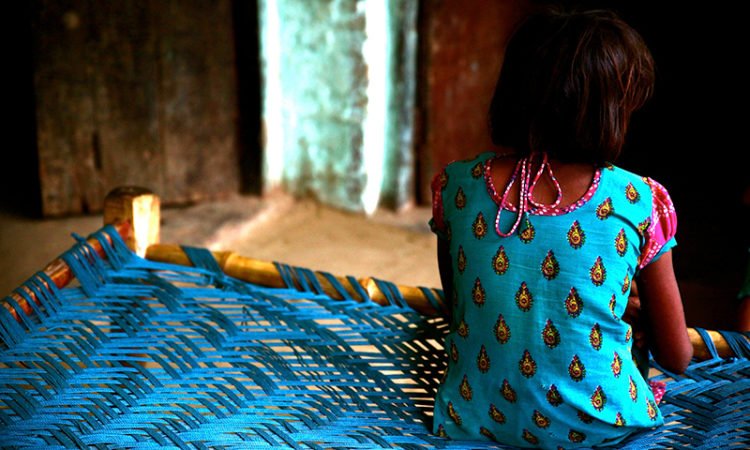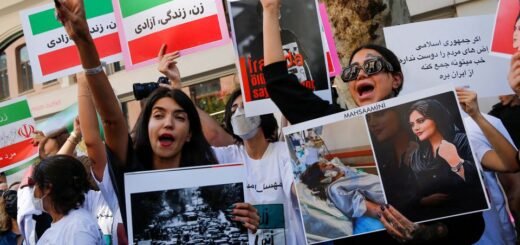May 23 | International Day to End Obstetric Fistula

“It’s a feeling of shame, despair, sadness,
It makes make me lay down in an unknown corner of the room,
Bleed unknowingly ,
Change sheets more often,
I fear the society would judge me,
I can’t escape the feeling of being ‘trapped’, even though I really want to;
the medics call it ‘Fistula’,
I call it a nightmare.” – whispers every woman diagnosed with Obstetric Fistula.
Since the year 2013, The World Health Organization observes the Obstetric Fistula day on May 23, every year, so as to raise awareness about the constantly rising cases of Obstetric Fistula and to gain support globally. As per the reports published by the organization, almost 50,000 – 100,000 women are affected by the Fistula throughout the world and the number may continue to increase because of the outbreak of Covid-19. It is predicted that 13 million more child marriages can take place before 2030 and the delays in providing relevant care may increase.
The disease happens to occur when a mother undergoes prolonged labour dystocia and doesn’t have access to medical facilities. Therefore, she ‘has to’ labour the agonizing pain for days and her baby tragically faces the most noisiest yet a silent death. Even though the fistula can be prevented by delaying the first pregnancy, eliminating harmful traditional practices and timely accessing the obstetric care, an estimate of more than 2 million women aren’t treated in Asia and the sub- Saharan region. Besides leaving behind a feeling of sorrow and shame, it impacts women physically as well as psychologically and tends to open doors full of negativity for the future.

Closely examining India, the fistula is one among the unnoticed or rather ‘ignored’ causes of maternal death. There are numerous social causes of the concern, like, illiteracy, rapes, violence and the major one being- poverty. As suggested by multifarious factors, like the demography and the status of healthcare, Assam is the poorest of all 29 states in the country, which undoubtedly makes it a fistula prone zone. The Sample Registration System Report of 2011 establishes that the maternal mortality ratio is 390, which is higher than the rest of the country. The statistics provided by the District Level Household Survey (DLHS) demonstrate that the ubiquity of the issue in Assam is unexceptionally high, i.e. 4.5% more than all the other states. Although, we cannot deny that the government has made an attempt to reduce the percentage of the fistula by coming up with multiple initiatives under the National Rural Health Mission schemes, for like, Janani Suraksha Yojana, unfortunately, no significant improvements have been observed; the most probable reason behind which are the traditional practices that are ‘expected’ to be performed by a woman in the country.
A ray of hope was seen before the outbreak of Covid-19, as India was making efforts to drive itself towards the process of ‘modernization’. It was soon going to be titled as the fastest growing economy of the world but now the status of women in the country remains questioned.
Taking the sub-Saharan African region into consideration, a very low percentage of women seek fistula treatment. Scholar Asefa in her paper titled, ‘Treatment-seeking for vaginal fistula in sub-Saharan Africa’, clearly stated that only 60% of fistula patients sought treatment from the formal medical sector and a small proportion out of which, i.e. 29% underwent surgery. The figures, henceforth, clearly portray that the region doesn’t have a capable healthcare system so as to treat the already known cases. In addition, she mentioned that a couple of studies of the same region, performed in the past have reported ‘NO’ treatment to the registered cases because of fewer centres for treatment, a dearth of skilled professionals and existence of huge backlogs awaiting treatment – 45% of women diagnosed in Somalia could not undergo surgery within one year of registration while women in Burkina Faso had to wait as long as five years to be operated, making it a worst-case scenario.
On the other hand, in the case of Europe and USA, the fistula was eradicated with the help of a public health effort that ran from the year 1935 to 1950 and permitted universal access to safe delivery care, which is still a problem in underdeveloped and developing countries because there lies a massive gap between maternal healthcare in high income and low-income nations.
Thus, it can be said that women with this disease are the dials of the failure of healthcare systems to provide accessible, timely and appropriate treatment. It is highly recommended that the treatment shouldn’t be about an episode but shall consist of series of episodes, it means that the treatment should be amplified with strategies to bridge healthcare systems with the economic and awareness barriers.
Most women who are prey to the disease, have been sexually tortured by their husbands and are illiterate. Illiteracy is another reason for women not tending to act ‘adequately’, ‘responsibly’ and being ‘embarrassed’. That is why making and execution of more government policies that deal with sexual violence and illiteracy will be appreciated.
Actions should be taken at all levels; both, locally and internationally.

In response to Covid-19, WHO has released this year’s theme to be ‘”End gender inequality! End health inequities! End Fistula now!”, which is a signal that the United Nations is committed to promoting women healthcare, providing safe and effective maternity care to women and their new-borns.
Apart from WHO, The Lancet Commission on Global Surgery has already emphasized that guaranteeing all women and girls in need, timely, high quality, life-saving care is a fundamental human rights issue and a key factor to achieve Sustainable Development Goals because no human should lead a horrific life full of misery just for trying to bring a child in this world.
As individuals, it is our utmost responsibility to try our very best to make the society a better place to live for women, where they aren’t ashamed to talk about their health concerns, can easily reach out to the nearest healthcare centres and aren’t blamed unnecessarily because for the country to grow it is vital for a woman to feel safe, healthy and comfortable.
“Heal the
world
Make it a better place
For you and for me
And the entire human race
There are people dying
If you care enough for the living
Make a better place for you and for me”- Michael Jackson


















